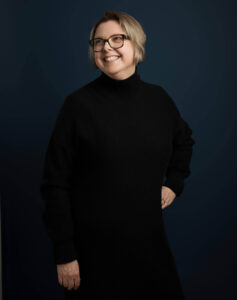Applying for a PhD can be daunting and confusing. This brief guide is for those at the beginning of this journey and aims to set out different routes into a social science PhD, with a few tips and tricks for the application process.
There are two main routes into a PhD in the social sciences:
Firstly, you can apply to do a PhD that has already been proposed by academics who will supervise the work. These often have funding secured, and sometimes form part of a larger research project with external partners (NGOs, companies, or other stakeholders who are involved with the research). These opportunities are advertised on platforms including jobs.ac.uk, twitter, and on school websites. You can apply to these in the same way you would apply for a job.
Secondly, you can design your own research project and apply to do it as a PhD. This is the route I took. This application process can be convoluted and is by no means linear, but the main steps are as follows:
1. Initial Topic
The first step is to decide on an initial topic. This must have two key qualities. Firstly, you will ideally be genuinely fascinated by it! Your topic should be something you can spend 3 to 4 years obsessing over… This could be a big question that you want to answer, a social problem you are passionate about, or something you have previously enjoyed studying. For me and many students in my cohort, this topic is closely related to our personal experiences.
Secondly, there needs to be scope for you to make a unique contribution to knowledge. This will typically be theoretical, empirical, or methodological. For example, I will be making an empirical contribution to knowledge by studying an under-researched social problem. Other studies will bring together two concepts that have not been previously associated with each other (for example, looking at a social problem through a new lens), or challenging an existing assumption in literature.
At this stage it can be difficult to gauge the scope of a PhD. I had some ideas that were more suited to an MA dissertation, and others that would’ve taken a research team of 10 people 10 years to answer! I drew a spider diagram of all my ideas and discussed these with friends to help work out what I was truly passionate about. I also asked to meet with academics that I trusted to help me think through what would be feasible for a PhD.
2. Supervisors
Once you have an initial idea, you will need to find your supervisors! For a PhD you will typically have 2 academic supervisors who you meet with once a month to discuss the progress of your work. These scholars will already be researching in your field of enquiry. You may have been taught by them, read their work, or found them on a school website. Don’t be afraid to ‘shop around’ here – consider different universities and departments to find the best fit for your project.
At this stage, I was already working in a world-leading research centre for my thesis topic. I knew of two brilliant academics in the research centre who I admired and knew had supervised PhD students before. I emailed them separately to ask if they would be interested in supervising my PhD. I included a couple of lines setting out my academic history and capability, and also attached a short (200 word) blurb detailing my initial idea. Luckily, they both said yes! But do note that it’s worth emailing your A-list-dream-supervisor; if they are unable to take on a PhD student at the moment, they will likely recommend someone else capable and relevant to your topic.
3. Proposal
Once you have confirmed your supervisors, you will need to write a larger proposal. This will form your main application to the university and school or department. For me, this was a 4,000-word document that I sent to my school along with my academic record and a personal statement. This proposal will typically include more detail on your topic, an initial review of existing literature, and an idea of your methodology.
It is important to note that you do not need to have planned out your whole thesis at this stage! Throughout your first year of the PhD, you will read all there is to be read on this topic and significantly develop and refine this proposal. However, it does need to demonstrate a genuine gap in knowledge and convince the reader that this is a worthwhile project.
My advice at this stage is to welcome feedback from your supervisors. I sent mine multiple drafts of my proposal and application, and their comments and advice were invaluable. I also gave this a lot of time (giving supervisors at least a week to respond to a draft).
4. Funding
Alongside applying to your university, you will probably also need to consider funding your thesis. It is notoriously difficult to obtain PhD funding. There are more brilliant postgraduate research students with interesting and important projects than there is funding, so it is very competitive. It is definitely worth speaking to your supervisors and researching in your school and university to make sure you have a clear idea of all the funding streams and scholarships available. I would recommend applying to as many as possible, and not being afraid to refine and re-apply if you are unsuccessful the first time round.
The main funder of social science PhDs is the Midlands Graduate School ESRC DTP. I am fortunate enough to have been awarded this studentship and do have a few tips for the application process.
Firstly, I would recommend the MA Social Science Research. This training year is included in many studentships and offers an invaluable introduction to the world of research. Secondly, it is worth aligning your work to the ESRC research priorities if possible (climate change, innovation in health and social care, trust and global governance in a turbulent age, mental health, housing, productivity, and understanding the macroeconomy). Thirdly, when writing your application, make sure to align to the assessment criteria. This is 40% person and preparedness, 40% project, and 20% place/institution.Lastly, work with your supervisors on this application. I wrote this alongside my PhD proposal for the university, and feedback and guidance from my supervisors was again invaluable.






